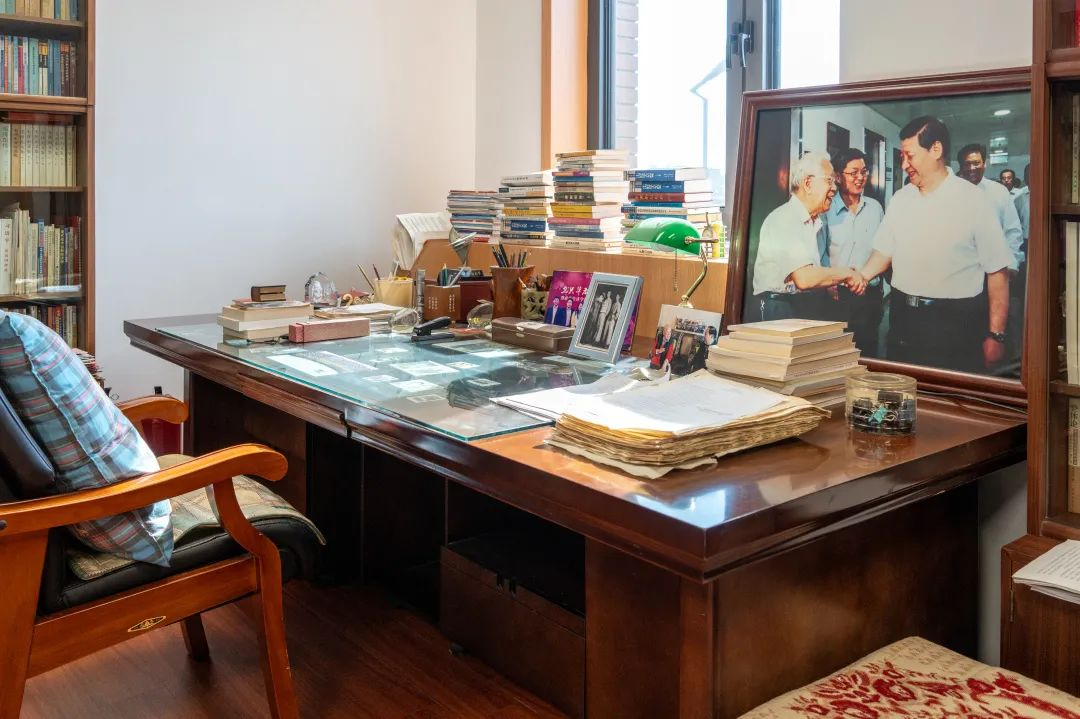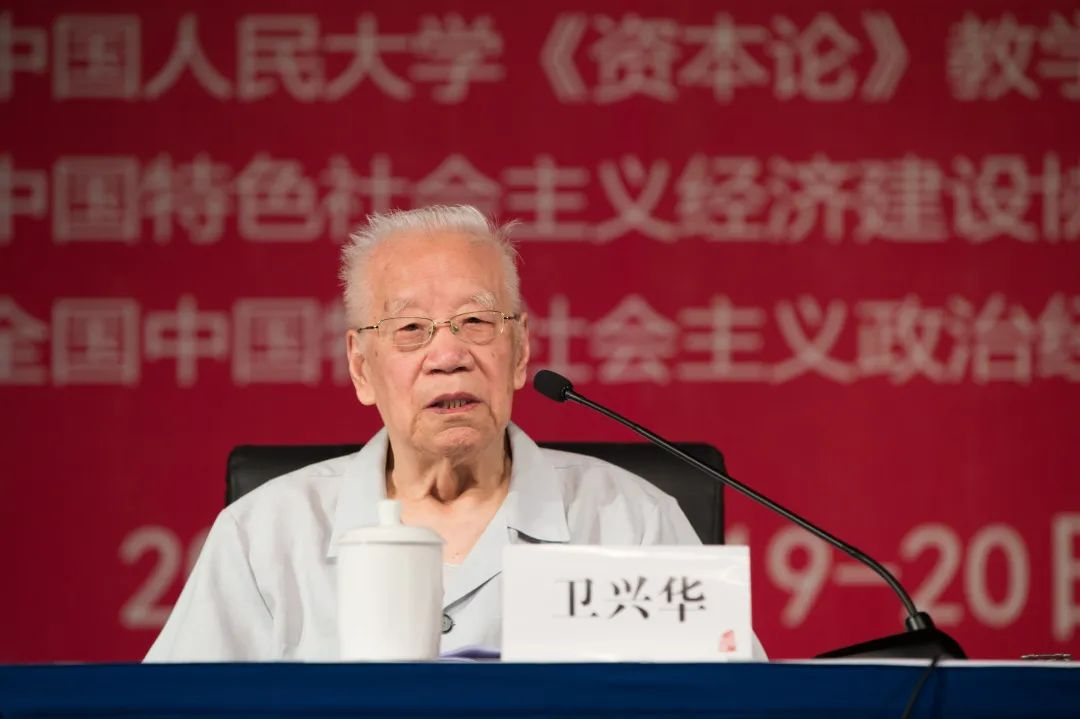The donation ceremony of life objects, books, precious manuscripts, as well as the special exhibition featuring the restored study scene of late Professor Wei Xinghua was held in at the Tongzhou Campus of Renmin University of China (RUC) recently. The exhibition showcased over 40 of Wei’s authored works and more than 1,000 research manuscripts, documenting his academic journey—from critically analyzing Soviet textbooks to pioneering the theory of socialist commodity economics.

To restore the study, the Museum of RUC collaborated closely with the Tongzhou Campus Management Department and the Museum of RUC History. After extensive research and meticulous coordination with Professor Wei’s family, the team achieved a 1:1 faithful reconstruction. Beyond the study scene itself, the corridor adjacent to the exhibition space has been transformed into a dedicated special exhibition themed “the Restoration of People’s Educator Wei Xinghua’s Study”, highlighting his scholarly and educational achievements.
Wei Xinghua’s study was a marker of his intellectual courage. In the 1950s, as a young scholar, he dared to challenge the dominance of Soviet economic textbooks, critiques that would later prove seminal. In 1959, he became the first scholar in China to propose the theory of socialist commodity economics. By 1986, he had systematically analyzed the operational mechanisms of a socialist economy, introducing the two-tier vertical regulation theory and exploring the realization forms of public ownership—ideas that later aligned with national policy reforms. Over decades, Wei authored nearly 1,000 academic papers, including Research on the Theoretical System of the Economy of Socialism with Chinese Characteristics, and published over 40 works such as Approaching Marx’s Economic Palaces, cementing his legacy as one of China’s most prolific economists.
The study was also a beacon of pedagogical dedication. Even at the age of 90, Wei persistently taught specialized discussion courses to doctoral students every one or two weeks, often lecturing for two to three hours at a stretch. Upon receiving the national honorary title of “People’s Educator’’ at age 95, he said: “May the tree of Marxist economics take deep roots and thrive, and may the people’s education cause flourish!” This heartfelt wish reflects both his hopes for future scholars and the enduring spirit of RUC.

Wei once asserted: “Do not follow authorities, books, trends, or the crowd—only follow facts.” This ethos resonates widely today. Zhang Donggang, Chair of the University Council, stated that RUC plans to continue the restoration of historical offices and studies of pioneering educators like Wu Yuzhang, Cheng Fangwu, and Gao Mingxuan. Such efforts aim to perpetuate the legacy of these trailblazers and ensure their intellectual and ethical values endure across generations.



